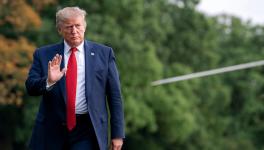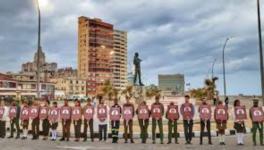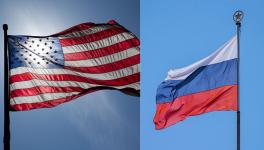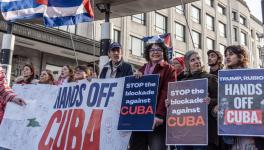Assange a Suicide Risk if Extradition Becomes Imminent, says Witness to Court
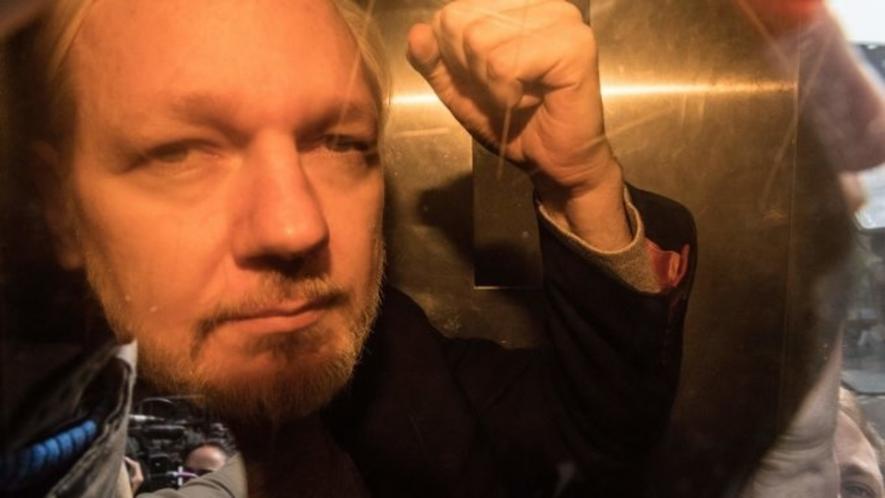
Neuropsychiatrist Michael Kopelman testified in Julian Assange's extradition hearing on September 22, 2020 and said that Assange is at risk of suicide if he is extradited.
On Day 11 of Julian Assange’s extradition trial, September 22, the defense began with testimony from the King’s College’s neuropsychiatrist Michael Kopelman who talked about Assange’s deteriorating mental health. Kopelman stated that the either the eventuality of the extradition or a high possibility of it is enough to trigger a suicide attempt from Assange.
Kopelman’s testimony, is the first of a line of witnesses from the medical profession that Assange’s team will be presenting this week in order to prove that Assange’s health is steadily deteriorating. According to Kopelman, Assange has exhibited a history of depression, since at least 2014-2015, when he was in the Ecuadorian embassy in London as a political refugee.
Kopelman also stated that apart from depression Assange also suffered from musical hallucinations during his depression episodes. The prosecution tried to turn into a question of whether Assange had “delusions” which he vehemently denied by the psychiatrist. He also added there is a “high risk” of suicide, if Assange were to face a looming extradition process.
“It’s the imminence of extradition and/or an actual extradition that will trigger the attempt, in my opinion,” Kopelman said. He also added that it is not possible to provide a “mathematical prediction” if asked in the court, and that they knew “All we can do is note there are an abundance of known risk factors in Mr. Assange’s case.”
During the witness cross-examination Kopelman also added that Assange told him about contraband that he brought into the Belmarsh prison, where he has been imprisoned for the last year. Said contraband was a razor blade and was later discovered by prison authorities, which led him to be isolated from the rest of the prisoners for four days.
Fairbanks’ bombshell revelations on Day 10
In the meanwhile, conservative journalist Cassandra Fairbanks testified that the US is very likely to have made back-channel deals to get Assange arrested. In an affidavit read out to the court by the defense on Monday, September 21. Fairbanks stated that she was told of Assange’s planned removal and arrest from the Ecuadorian embassy, through Arthur Schwartz, an informal adviser to president’s son Donald Trump Jr.
Fairbanks, who is the Washington bureau chief of the right-wing pro-Trump news outlet Gateway Pundit, submitted recorded messages and phone calls from Schwartz between October 2018 and September 2019, to Assange’s legal team as evidence to such manipulations in February 2020. The evidence submitted was recorded at the time when Schwartz was calling to pressure her to drop her coverage of the Wikileaks persecution.
In the statement read out to the court, Fairbanks said that Schwartz called her first in October 2018 after she posted an interview with Assange’s mother Christine Assange. “He repeatedly insisted that I stop advocating for WikiLeaks and Assange telling me that ‘a pardon isn’t going to fucking happen,’” she stated. The phone call also had what she perceived to be a veiled threat from him, after he referred to her 9-year-old child.
“He knew very specific details about a future prosecution against Assange that were later made public and that only those very close to the situation then would have been aware of,” she commented.
“He also told me that the US would be going into the embassy to get Assange. I responded that entering the embassy of a sovereign nation and kidnapping a political refugee would be an act of war, and he responded, ‘Not if they let us,’” she added.
The statement also read that Schwartz, who is close to the Trump administration, told her that diplomat Richard Grenell, the then US ambassador to Germany and who Schwartz advised at the time, was involved in making backdoor negotiations with the Ecuadorian government.
“I did not know at that time that Ambassador Grenell himself had that very month, October 2018, worked out a deal for Assange’s arrest with the Ecuadorian government,” said Fairbanks.
Although Fairbanks identifies as a Trump supporter in her statement and has for years been associated with the right-wing in the US, she has publicly supported Wikileaks, Assange and whistleblower Chelsea Manning, on the grounds of supporting free speech and press freedoms. Fairbanks has stated that Schwartz had previously targeted her for her coverage of the Wikileaks case and even tried to get her fired from her previous job.
Fairbanks had released parts of the conversations with Schwartz in February this year, after submitting it to Assange’s defense team. In the recorded phone call Schwartz said that Grenell negotiated under direct “orders from the president”. The revelations came barely two months after Ecuador received a loan amount of USD 500 million from the International Monetary Fund (IMF), which many, including former Ecuadorian president Rafael Correa, speculated to have come in exchange of Assange’s arrest in April 2019.
This article was first published in Peoples Dispatch.
Get the latest reports & analysis with people's perspective on Protests, movements & deep analytical videos, discussions of the current affairs in your Telegram app. Subscribe to NewsClick's Telegram channel & get Real-Time updates on stories, as they get published on our website.









